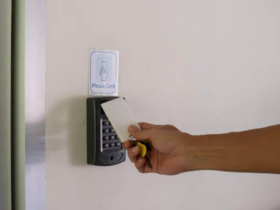Introduction
Have you ever come across websites that claim to offer authentic and accredited diplomas, degrees, and certificates? With the increasing demand for higher education credentials, the internet has become a breeding ground for fake diploma mills. These fraudulent websites pose a serious threat to individuals seeking legitimate education and can have detrimental consequences for their future. In this comprehensive guide, we will explore the world of fake diploma websites, learn how to identify them, and understand the steps to report them.
The Rise of Fake Diploma Websites
In today’s highly competitive job market, having a degree or diploma can significantly enhance your career prospects. Unfortunately, this has led to the proliferation of websites that exploit this demand by offering counterfeit diplomas. These websites often claim to provide instant degrees from prestigious universities, with minimal effort or verification. However, these diplomas hold no value and can jeopardize your reputation and future opportunities.
Identifying Fake Diploma Websites
Spotting a fake diploma website requires a keen eye for detail. Here are some key indicators to watch out for:
Poor Website Design and Content
Fake diploma websites often lack professional design and have poorly written content. Grammatical mistakes, spelling errors, and awkward sentence structures are common signs of a fraudulent website.
Unrealistic Claims and Instant Degrees
Authentic universities have stringent admission processes and academic requirements. If a website promises a degree in a short period of time without any coursework or exams, it is most likely a scam.
Lack of Accreditation and Verification
Legitimate educational institutions are accredited by recognized accreditation bodies. Fake diploma websites may claim to be accredited, but upon investigation, their accreditation is often found to be fake or non-existent.
Suspicious Payment Methods and Prices
Be cautious of websites that only accept payment through untraceable methods such as cryptocurrency or wire transfer. Additionally, extremely low prices for degrees that are significantly below the average cost should raise red flags.
Reporting Fake Diploma Websites
Taking action against fake diploma online is crucial to protect yourself and others from falling victim to their deceit. Here are the steps to report such websites:
Gather Evidence
Document any evidence that proves the website’s fraudulent activities. This may include screenshots, emails, payment receipts, or any other communication you have had with the website.
Contact Local Authorities
Report the fake diploma website to your local law enforcement agency or educational authorities. They may have dedicated departments or task forces to handle such cases.
Notify Accreditation Bodies
If the website claims to be accredited, report them to the relevant accreditation bodies. Provide them with all the evidence you have gathered to support your claim.
Share Information Online
Raise awareness about fake diploma websites by sharing your experience on social media platforms, educational forums, and review websites. This can help others avoid falling into the same trap.
Conclusion
Fake diploma websites are a menace that preys on individuals seeking legitimate education and credentials. By staying vigilant and learning how to identify these fraudulent websites, we can protect ourselves and others from their deceptive practices. Remember to report any suspicious websites to the appropriate authorities and share your experiences to help create a safer online educational landscape.







